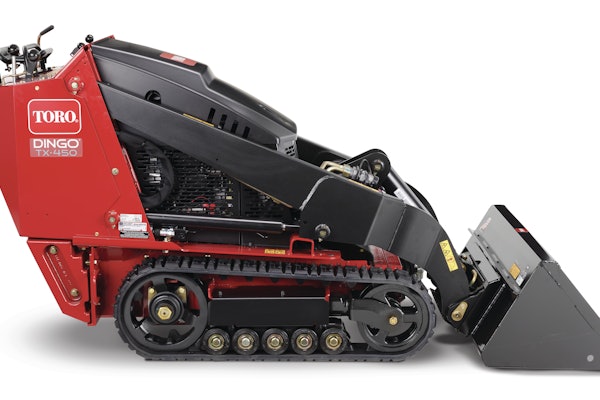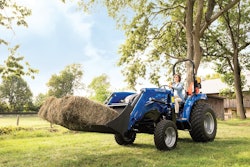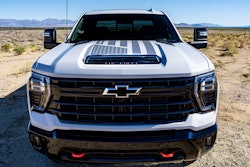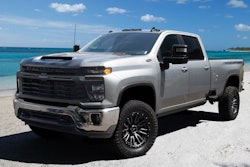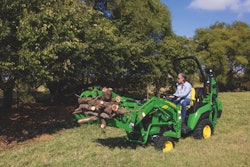Some landscapers are thriving in this economic recession, while others are faltering. Regardless of your business situation, the need for equipment is probably lurking. This may be the year you were planning to upgrade certain machinery, under normal circumstances. Or perhaps you’ve added services and need the proper tools to maintain that service. Though the economy is foundering, you don’t have to. Consider the pros and cons for these three options that may help you stay afloat.
Leasing
Landscapers looking to own equipment have two options: leasing or buying. Charlie Hanavich, an account executive for Crest Capital, recommends leasing during the current economic situation.
“Right now, it’s good to keep cash flow as liquid as possible,” he says.
Many landscapers know about the Section 179 Deduction within the IRS tax code – for equipment purchased by Dec. 31, 2009, you can write off the entire equipment cost without paying the full amount during this year. Few realize this is also an option for leasing, if landscapers sign lease-to-own contracts.
Hanavich says landscapers can sign a Capital Lease, such as a $1 buyout lease, or an Equipment Finance Agreement. Under these contracts, landscapers have until Dec. 31 to purchase new equipment. The equipment must be in their possession on the last day of the year, even if payments don’t start until January. Everything landscapers need to know about the deduction can be found at www.section179.org. Hanavich says the site offers a deduction calculator so professionals can weigh the costs before taking action.
Wayne Volz, owner of Wayne’s Lawn Service in Louisville, Kentucky, says leasing can be a good option for landscapers who may have lost accounts, resulting in low cash flow. Volz, whose company only leases vehicles, advises leasing in this economy because it offers lower payments, which is beneficial during a cash flow crunch. However, Volz also acknowledges a problem with leasing.
“It costs you too much money,” he says. “Leasing is an inexpensive solution to a cash flow problem but an expensive proposition.” The smaller payments help landscapers whose businesses are slow while the need for equipment is great, but if the added cost in interest is too much, Volz and others recommend renting the needed equipment.
Renting
Landscapers who are surviving these economic tides have found diversification of services as a solution. Companies are looking for work in places they normally wouldn’t – and finding golden opportunities to make up for lost accounts and more.
“They are taking on projects they would not have previously, but the successful operations are expanding their customer base,” says Heather Schlichting, corporate communications specialist with RSC Equipment Rental. “Renting this equipment allows them to meet their customers’ expectations with less fiscal commitment, which helps their bottom line.”
Schlichting says equipment such as sod cutters, trenchers and mini excavators are what landscapers are asking for most, along with brush chippers and stump grinders. “Maintenance, instead of new construction, is today’s opportunity,” she says.
Ken Hughes, vice president of corporate communications for the American Rental Association, recommends renting hands-down. “You’re not going to go out and invest several thousand dollars on equipment when you may only be bringing in several hundred dollars,” he says. “People don’t have the money, so there is an alternative.”
Volz says renting is a great option for people who aren’t going to put enough hours on a piece of equipment to warrant purchasing or leasing. “Renting for a few months versus buying or leasing is good because when you buy/lease you are committed to that piece of equipment,” he says.
Schlichting agrees, saying renting for specific jobs will reduce a landscaper’s overhead as ownership costs include a monthly payment, insurance, storage and maintenance. Hughes suggests landscapers may find rental stores that will give a sensible discount for regular rentals. Professionals who opt to rent should try to negotiate better rates for consistent rentals.
Buying
Another option for obtaining needed equipment is buying. For companies that can handle the larger payments, buying can still be a good choice. Payments are more, but the interest rates are lower and terms are shorter. Though the overhead costs are a constant disadvantage with this economy, landscapers who choose to buy now should still take advantage of the Section 179 Deduction.

